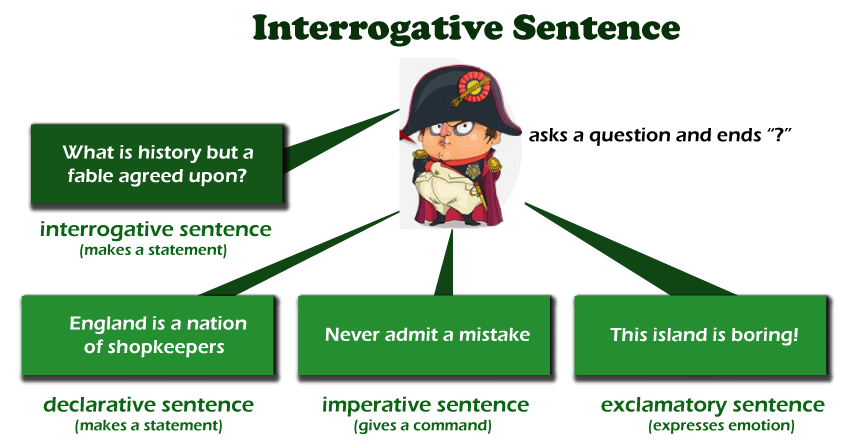Interrogative Sentence

An interrogative sentence is a type of sentence that asks a question. It is used to seek information, clarification, or confirmation from the listener or reader. Interrogative sentences typically begin with a question word (such as who, what, where, when, why, how) or an auxiliary verb (such as is, are, can, will), followed by the subject and the main verb.
Here are some key characteristics of interrogative sentences:
Questioning Tone: Interrogative sentences are written or spoken in a questioning tone, indicating that the speaker is seeking information or asking for a response.
Question Word or Auxiliary Verb: Interrogative sentences often begin with a question word (who, what, where, when, why, how) or an auxiliary verb (is, are, can, will), followed by the subject and the main verb.
Inverted Word Order: In many interrogative sentences, the word order is inverted, with the auxiliary verb or question word appearing before the subject.
Ending with a Question Mark: Interrogative sentences always end with a question mark (?), which indicates that the sentence is a question.
Examples of interrogative sentences:
In these examples, the interrogative sentences pose questions to the listener or reader, seeking information or clarification. The question mark at the end of each sentence indicates that it is an interrogative sentence. Interrogative sentences are commonly used in conversation, interviews, surveys, and other forms of communication to elicit responses and engage with others.
Thank you,